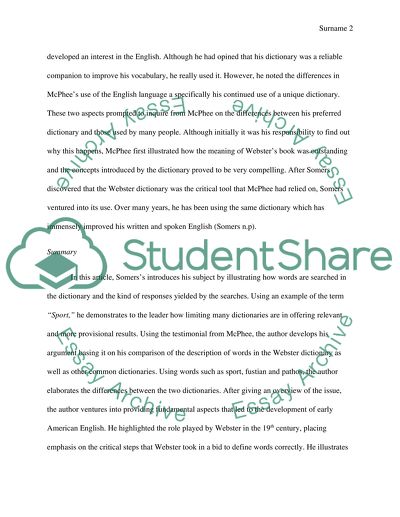Cite this document
(Analysis of You Are Probably Using the Wrong Dictionary Article by Term Paper, n.d.)
Analysis of You Are Probably Using the Wrong Dictionary Article by Term Paper. Retrieved from https://studentshare.org/english/1649248-write-a-response-paper-about-the-given-article
Analysis of You Are Probably Using the Wrong Dictionary Article by Term Paper. Retrieved from https://studentshare.org/english/1649248-write-a-response-paper-about-the-given-article
(Analysis of You Are Probably Using the Wrong Dictionary Article by Term Paper)
Analysis of You Are Probably Using the Wrong Dictionary Article by Term Paper. https://studentshare.org/english/1649248-write-a-response-paper-about-the-given-article.
Analysis of You Are Probably Using the Wrong Dictionary Article by Term Paper. https://studentshare.org/english/1649248-write-a-response-paper-about-the-given-article.
“Analysis of You Are Probably Using the Wrong Dictionary Article by Term Paper”, n.d. https://studentshare.org/english/1649248-write-a-response-paper-about-the-given-article.


